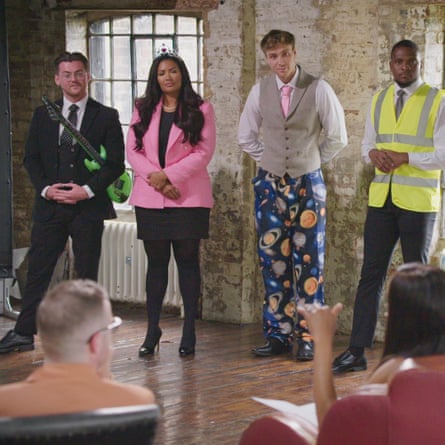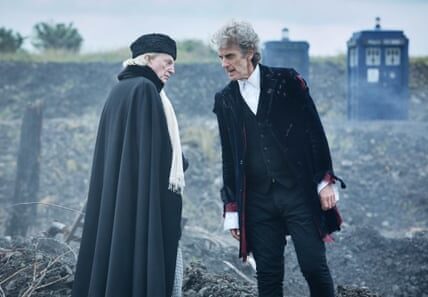Did reality TV shows intentionally deprive contestants of sleep to provoke emotional breakdowns and confrontations, causing them to cry and become angry?
R
In the past, reality TV was a chaotic environment, but after it was connected to 40 deaths within 30 years, some level of regulation has been established in the unpredictable world of unscripted television. Participants are no longer required to consume live spiders on I’m a Celebrity, and Love Island contestants are now limited to two alcoholic drinks per night. Additionally, since Britain’s Got Talent contestant Susan Boyle entered the Priory for exhaustion in 2009, it has become customary for reality TV applicants to undergo psychological evaluations. However, this may not be as beneficial as it seems, as the pressure and fatigue are inherent in the nature of these shows.
Sleep deprivation is the hidden reality of reality TV. Contestants on Netflix’s new competition Squid Game: The Challenge are currently seeking compensation after allegedly experiencing hypothermia and nerve damage while filming in freezing temperatures. Comparatively, the show’s sleeping conditions might sound dreamy: participant Melissa Rimsza says hundreds of players slept in a windowless warehouse full of bunkbeds, with its fluorescent lights dimmed.
“I covered my eyes with underwear to block out the light,” explains Rimsza, a 22-year-old student from Arizona. She joined a group of individuals who claimed not to snore and slept in a corner with them. “But, as expected,” she adds, “someone was not being truthful.” Despite the production team’s requirement of eight hours of sleep, Rimsza was frequently awoken by the creaking of bedposts or early-morning jogs by other contestants. The microphone placed next to her pillow also made it challenging to relax, and after nine days of inadequate sleep, she began to feel nauseous. “We were all extremely exhausted,” she recalls. “They don’t show this much on the show, but everyone was really, really tired.”

Many of us tend to make assumptions about reality TV contestants based on their actions, such as spitting, crying, or screaming. We rarely consider the possibility that they may be sleep-deprived. While some endurance shows explicitly include poor sleeping conditions, like I’m a Celebrity, viewers may not realize that dating shows may also have contestants who are fatigued. Jeremy Hartwell, a participant on season two of Netflix’s Love Is Blind, is currently suing producers for subjecting him to “inhumane working conditions.” Hartwell claims that he was not given enough food and was given alcohol, and also experienced sleep deprivation.
Hartwell explains that they introduced a concept known as “night-dating.” Due to the lack of clocks, it is difficult to pinpoint the exact timing of these dates. However, they usually went on until around 2am. The 38-year-old, who resides in Chicago, mentions that these dates were not mandatory but were suggested by producers for those who wanted to do well. He approximates that he only got two to three hours of sleep each night due to having to return to his hotel room at 3am and then being expected in the lobby at 7.15am.
Fellow contestant from season two, Nick Thompson, also faced difficulties with the demanding schedule. Despite being told that he chose to participate, it wasn’t until a few days had passed and he had only gotten a few hours of good sleep that he truly understood the toll it would take on him. At 38 years old, Thompson developed a migraine and even vomited during filming. He also became emotionally vulnerable and easily irritated. As a marketing executive from Chicago, he was disturbed by the way production staff manipulated him when he was exhausted. They constantly asked him the same questions and instructed him on how to rephrase things, which he found to be unfair.
Hartwell suggests that production companies intentionally limit contestants’ sleep in order to create more compelling television. He remembers feeling emotional and crying without cause, and believes this is a common tactic used by reality TV shows. It raises the question of why sleep deprivation is necessary in these productions.

Alex Hobern, a 31-year-old who won the first season of Channel 4’s The Circle in 2018, shares this sentiment. Hobern, who resides in London and manages the social media company Flint Social, believes that the lack of sleep is deliberate. Similar to other participants, Hobern was not informed of the time during filming, but he could tell when night had arrived by the shift change of the production crew and the change in the voice coming from the ceiling.
Even though the clock on the oven in his on-set apartment was incorrect, Hobern would check the time on the watch of a show psychologist and use it to keep track of time. He realized that filming often went past midnight, so he would not get to sleep until 4am. He admitted feeling exhausted and noticed that within a week or two of being on the show, something as small as a comment on a group chat could make him furious, despite being normally level-headed.
What is the expert opinion? According to neuroscientist Els van der Helm, a professor at IE Business School in Madrid, individuals who are sleep-deprived tend to have less emotional self-control. In a 2007 study published in Current Biology, it was discovered that the amygdala, the area of the brain responsible for processing emotions, is 60% more active in individuals who have not slept, resulting in a stronger reaction to negative stimuli. Van der Helm refers to this as “All gas, no brakes.”
In a study conducted by Van der Helm in 2010, it was discovered that individuals who lacked sleep had difficulty understanding the emotions of others. According to the researcher, this often resulted in a decreased ability to show empathy and a decrease in trust towards others. It was noted that being awake for 17 hours straight is equivalent to having a blood-alcohol level of 0.05%, which is the legal limit for driving in many European countries.
Hartwell claims to have maintained emotional stability and control throughout his entire life. However, towards the end of his experience on Love Is Blind, he admits to experiencing heightened emotions, including tears, anger, and extreme sensitivity.

Lack of sleep can also impact one’s physical well-being. During the airing of the 20th season of the reality show Big Brother in November, evicted contestant Kerry Riches shared her experience of feeling exhausted while on the show. The former NHS employee, aged 40, admits to underestimating the availability of sleep during the show, stating, “I thought we would have some, but we only got very little.” Riches, who lives in Essex and has multiple sclerosis, sometimes did not go to bed until 5:30am. As a result, her illness worsened and she experienced temporary vision loss in one eye. However, Riches takes full responsibility for her lack of sleep as she did not want to be a “party pooper” and disrupt others by asking for quiet. She also did not request a separate room from production to sleep in.
In 2022, a hypothesis known as the “mind after midnight” was proposed by sleep researchers, suggesting that during nighttime, people may engage in behaviors that are harmful to themselves or others, such as self-harm, crime, and substance abuse. Van der Helm explains, “Even someone who is generally healthy and has no history of psychiatric disorders may experience increased anxiety and depression when deprived of sleep.” He also notes that exposure to daylight can improve our mood and brain function. However, this access to daylight may be limited on reality TV shows. For example, Love Is Blind participant Thompson shares that he only had the chance to see the sun during his bathroom breaks, while The Circle’s Hobern was only allowed 20 minutes of outdoor time per day.
Could reality TV be successful if all participants were adequately rested? According to Reece Donnelly, a participant on the latest season of The Apprentice, he would often be awoken at 4am for filming and wouldn’t get to sleep until midnight. The 27-year-old owner of a theatre school from Glasgow believes that the key to the show’s format is that people’s brains are exhausted, leading to unnecessary arguments and conflicts. He reflects, “Watching it back now, I can see that while the contestants weren’t unintelligent, their minds were in a fog. Many of the arguments on my season could have been avoided if everyone had been well-rested.”
Some participants have a more philosophical outlook. Rimsza from Squid Game notes that she had the option to leave at any moment. Matthew MacNabb, who appeared on the seventh season of Love Island in 2021, sees sleep deprivation as a necessary sacrifice that can enhance the quality of shows. According to MacNabb, who is 28 years old and resides in Dublin while working on his own wellbeing platform, feeling uncomfortable is a natural part of reality TV. He believes he managed sleep deprivation well during his time on the show. “In the end,” he states, “if you choose to be on reality TV, you must be aware of the potential consequences.”

In 2020, Ofcom made updates to its Broadcasting Code in order to provide better protection for participants. The regulatory body now requires TV productions to prioritize the well-being of contributors, but does not specifically address working hours or rest periods. Similar to The Circle’s winner Hobern, Love is Blind’s Thompson witnessed TV crews changing shifts at night, despite it being illegal for employees to work such long hours. However, contestants were still being filmed.
The production company responsible for The Circle and Squid Game: The Challenge, Studio Lambert, chose not to provide a statement. When inquired about Love Island, a representative from ITV stated that the participants are constantly monitored by producers, medical personnel, and psychologists, with their well-being being the top priority. As part of their thorough care procedures, sleep logs are used to ensure that the contestants receive adequate rest.
“Recorded sleep patterns are just one of several measures in place to ensure the well-being of the islanders by monitoring their daily and weekly amount of rest. These practices are a crucial part of Love Island’s comprehensive duty of care protocols, which are extensively documented and openly discussed online.”
The production company Banijay Group, responsible for Big Brother, chose not to provide a statement. Kinetic Content, the creators of Love Is Blind, did not reply before the deadline for this article. A representative for The Apprentice stated that the show has strict care protocols in place for the wellbeing of contestants, with a support network and breaks built into the filming schedule. The schedule is carefully planned and reviewed for each season, prioritizing the health and welfare of both contestants and crew.

“We prioritize transparency in both our off-screen and on-screen timelines, and the well-being of all those involved in producing the show is our top priority. The contestants are the driving force behind The Apprentice, and it is not in our or their best interest to deprive them of sleep. We take care to ensure they are well taken care of so they can fully benefit from the experience.”
Currently, there is disagreement among experts in the field of welfare regarding the need for changes. According to psychologist Jo Hemmings, who has offered support on shows like Big Brother, the issue at hand is complex because it is not possible to regulate the amount of sleep an individual gets. Furthermore, assessing the quality of sleep is a challenging task. Hemmings explains that when she interviews participants before the show, she inquires about their sleeping patterns, advises them about the environment they will be exposed to, and provides them with tips for better sleep.
According to Fiona Fletcher, the owner of Film and TV Welfare, she has not been involved in any of the productions mentioned in this article. However, she does believe that there is still a lot of work to be done in terms of promoting mental health and fulfilling duty of care for all individuals. She states that producers should be able to produce quality content without sacrificing ethical standards. Unfortunately, many companies lack the resources and training to properly implement mental health and welfare protocols, which often results in inexperienced crew members taking on these responsibilities. Fletcher argues that a more thorough approach is necessary.
Van der Helm expresses strong emotion when discussing these issues, stating that it puts individuals in a precarious position.
Hobern, a member of The Circle, struggles to find enjoyment in watching reality TV due to painful memories. He recalls his own experience in the show, where contestants are constantly sleep-deprived and underfed. While his wife may dismiss a contestant’s dramatic behavior as excessive, Hobern understands the reality behind it. The contestant’s fatigue and lack of sustenance can cause them to react strongly to seemingly trivial events.
Source: theguardian.com


